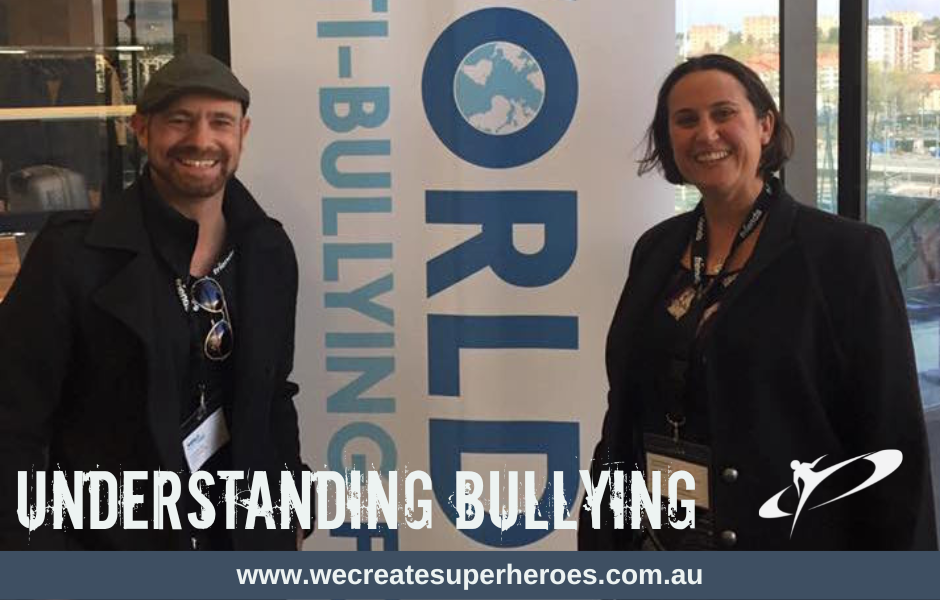As many of our families are aware, bullying prevention is a topic that is very important to all of us at Paragon. Sensei Cameron Gill, our founder, worked passionately towards bullying prevention for many years. He joined forces with Sempai Teresa some years back to establish The Bullying Revolution, to further develop Paragon’s Super Bullying Defence curriculum. We aim to help protect kids from the harmful impacts of bullying, and have also delivered programs to families and schools.
The Bullying Revolution continues to present at national and international conferences. The messages heard at these events are often very similar. Dedicated professionals discuss the latest research in bullying prevention, hopeful their new idea might make a difference to bullying rates. However, it is common to also hear statements such as, “I don’t think we are ever going to eradicate bullying altogether.” As more than 40 years of research has not resulted in any significant change in bullying statistics, it is not surprising that the experts in the field question their capacity to make a real difference.
Bullying vs. Not-bullying
While some research suggests there has been a slight reduction in bullying rates in recent years, findings are not consistent. Definitions used in research have been refined so tightly, it is very hard to find something that is actually “bullying” to measure. Has there really been a decrease in bullying, or have we so narrowly defined it that much of what was previously considered bullying is now no longer? Much of the criteria is extremely subjective and difficult to measure, so a lot of behaviour falls outside the realm of bullying. This behaviour is often dismissed, and schools and organisations may say “we don’t have a bullying issue”, while real people continue to suffer from the actions of others. This is extremely harmful to those who experience “not-bullying”.
Bullying is a behaviour, not a person
In our experience, most difficult situations require sensitivity and compassion to address effectively. Bullying behaviours affect between one quarter and one half of our children. It is therefore reasonable for any of us who worry about bullying to consider that our children could be the ones doing the bullying behaviour. The same protectiveness in us as parents to defend our children from harm also makes us defend our children from being accused of doing harm. We need to not be afraid to accept that if it is happening, someone is doing it. That someone is not the nameless and faceless “bully”. That someone could be any of us. Bullying is a behaviour, an action, that can be displayed by any of us under certain circumstances. It can also be changed and understood, rather than labeled and punished. Bullying is a behaviour, not a person.
We have started a conversation about cultural shifts in how we view bullying so we can begin to generate sustainable change. It’s time to step outside definitions and shift our perspectives on all behaviours that cause harm. We have been looking at this problem too long from one position. We need to find a new place to stand.
If you would like to know more about the kindness approach to bullying prevention and creating real change in this area, you can find information about The Bullying Revolution, here. We also have copies of the book Unbullying, written by Sensei Cameron Gill and Sempai Teresa Butler, available for purchase at the Tecoma Supercentre (or you can purchase it from Amazon, here).
